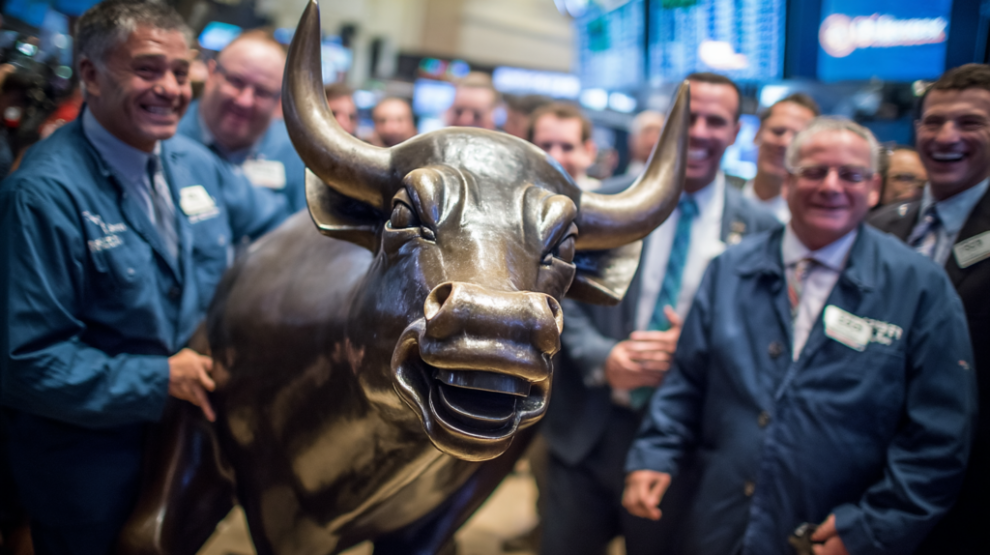The U.S. and China agreed to de-escalate their trade war by cutting tariffs by 115 percentage points, bringing U.S. duties on Chinese goods down to 30%.
The announcement sparked a broad-based equity rally, with the S&P 500 climbing back to early March 2025 levels and erasing losses from President Donald Trump‘s “Liberation Day” tariff shock.
The improved trade outlook also prompted economists to cut recession odds and upgrade U.S. growth forecasts for the second half of the year.
S&P 500 Logs 5 Consecutive Winning Sessions
The SPDR S&P 500 ETF Trust SPY closed 5% higher for the week, notching five straight sessions in the green.
Semiconductors kept powering higher. The iShares Semiconductor ETF SOXX rose nearly 10% on the week, logging its fourth straight week of gains and delivering its best monthly rally since 2020.
Yet, clean energy stocks – as tracked by the Invesco Solar ETF TAN – outshined even chipmakers. Solar names surged after Republicans released a better-than-expected tax proposal on renewable energy credits. Shares of First Solar Inc. FSLR soared 27% for the week, leading the sector.
Trump’s Middle East Blitz Attracts $2 Trillion In Gulf Commitments
During his Middle East visit, President Trump secured around $2 trillion in trade and investment pledges from Gulf countries.
Saudi Arabia committed $600 billion in deals involving Boeing Co. BA, Oracle Corp. ORCL, Advanced Micro Devices Inc. AMD, Uber Technologies Inc. UBER, Alphabet Inc. GOOGL, GE Vernova GEV and Johnson & Johnson JNJ.
Qatar followed with a $1.2 trillion package focused on energy and infrastructure, inking major contracts with GE Aerospace GE and Boeing.
The United Arab Emirates signed a $200 billion deal to import over one million AI chips from Nvidia Corp. NVDA and other initiatives with Exxon Mobil Corp. XOM, Qualcomm Inc. QCOM and Amazon.com Inc. AMZN.
UNH In Free Fall, Consumer Inflation Concerns Hit 1980s Levels
Back on Wall Street, one corporate giant is facing deep losses in what’s shaping up to be one of the worst crises in its history. UnitedHealth Group Inc. UNH shares nosedived 27% this week, marking the company’s worst weekly performance since the 2009 financial crisis and extending a five-week losing streak.
CEO Andrew Witty resigned Tuesday citing “personal reasons,” while the company suspended 2025 guidance due to surging medical costs. A U.S. Department of Justice criminal probe into alleged fraud in its Medicare Advantage program worsened investor fears.
On the macro front, April inflation data signaled softening price pressures, but retail sales dropped, reflecting consumer caution amid trade uncertainty. Inflation expectations are also heating up again.
The University of Michigan’s survey showed the weakest sentiment since 2020 as the one-year consumer inflation outlook hit levels last seen in 1981.
Chart Of The Week: Year-Ahead Consumer Inflation Expectations Have Never Been This High Since Early ’80s
Read Next:
Image created using artificial intelligence via Midjourney.









Add Comment